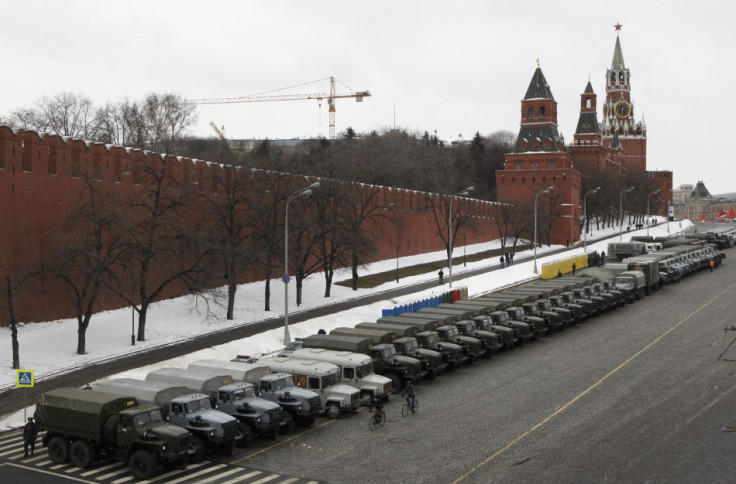Kremlin Website Taken Offline in DDoS Attack Not Related to Blocked Opposition Websites
Anonymous Caucasus claims responsibility for attack

Update (14 March @ 4pm): The Anonymous Caucasus group, an off-shoot of the main hactivist collective, have now claimed responsibility for the attack on the Kremlin's website, warning Russia's president Vladimir Putin: "This is just warming up, Russian Pig"
Update (14 March @ 3pm): According to a report from a Russian news agency the Kremlin has said the attack which brought the Kremlin website offline was a DDoS (distributed denial of service) attack and was not related to the on-going crisis in the Ukraine.
Security experts are currently investigating the incident, attemtping to identify the origin of the attack.
The source speaking to Itar-Tass said that "similar spamming mailings occur very often, but with different intensity and that "it is wrong to link them to the events in Ukraine."
Original story (14 March @ 9am):
The websites of the Kremlin and the Russian Central Bank were taken offline briefly by hackers but they are now operating normally again.
The news comes from Reuters which spoke to the Kremlin press office, but details of the identity and motives of the hackers are unknown at this point.
IBTimes UK contacted the Kremlin's press office but was unable to get an answer.
This is not the first time the Kremlin's website has been targeted by hackers, with Anonymous taking the website offline in May 2012 in solidarity with opposition protests. So far Anonymous has not taken credit for the most recent attack.
Opposition websites blocked
The attack on the Kremlin's website comes after a number of websites seen as critical of Russian president Vladimir Putin were blocked.
The Prosecutor General's office ordered Russian internet service providers to block a list of websites which it claims were inciting illegal activity:
"These sites contain incitement to illegal activity and participation in public events held in violation of the established order," a statement said.
Among the sites which were taken offline were opposition news websites and the blog of former world chess champion Gary Kasparov, a well-known critic of the current regime.
Earlier this month the Russian government blocked a dozen websites belonging to Ukranian groups opposing the Russian military intervention in Crimea.
© Copyright IBTimes 2025. All rights reserved.






















